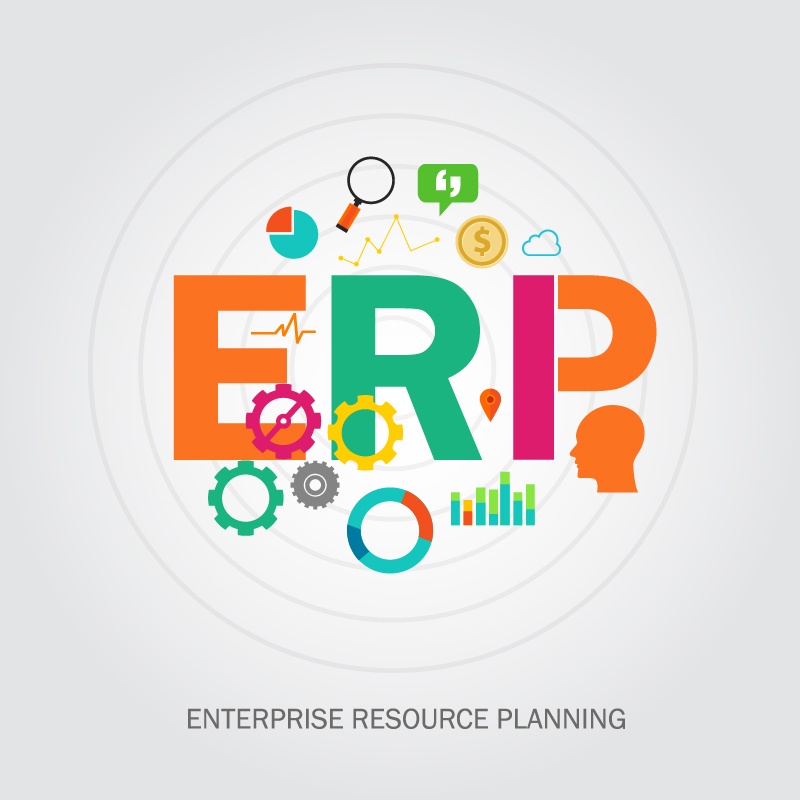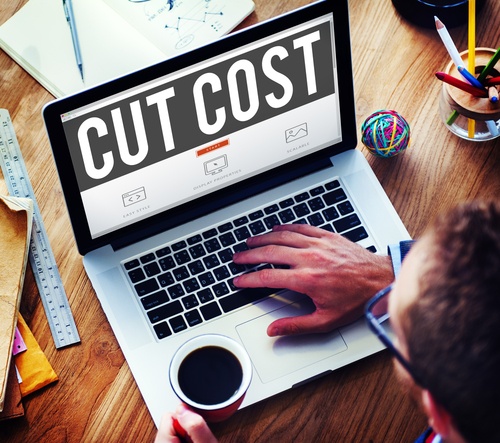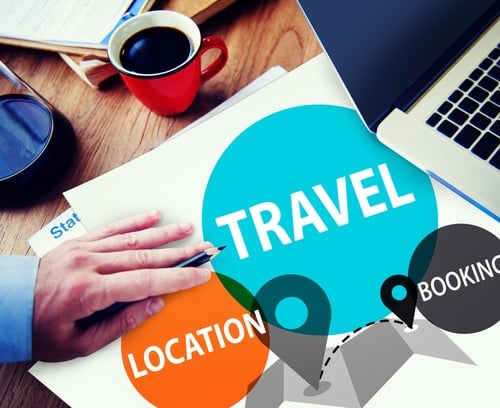Mega Marts and the Value of a Travel ERP System
By Nick Ostdick on May 19, 2016 9:00:00 AM

There was a time, though it may be difficult to imagine now, before the advent of the mega mart when shopping for groceries, home goods, hardware, and other domestic necessities was an all-day affair. Multiple stops at different specialty stores would be required, which would be costly, time-consuming, and you’d often end up overlooking or even opting out of some items on your list because of inconvenience or time constraints associated with visiting so many different retailers. 
But with the modern mega mart - you know which big name chain to which I’m referring - it’s easier than ever to obtain all the items on your shopping list by simply going to one place.
Groceries? New bath towels? Wood glue? DVDs? Clothing? All these items can be found under one roof, saving the customer time, money, and hassle. No longer do you have to drive all over town to complete your errands or sacrifice necessary items because of inconvenience, time-efficiency, or cost.
While the mega mart has revolutionized the way many of us shop, the same goes for ERP systems within the travel industry. Even as recently as ten years ago, OTAs, TMCs, tour operators, and other travel industry players were utilizing various technological platforms to administer their operational and planning functions - everything from accounting, procurement, data management, reporting, and human resource management. Essentially, travel companies were going to many different retailers in order to complete their errands or obtain all the items on their shopping list.
With much of the emphasis on customer-facing or engagement technologies like social media platforms and responsive websites, travel companies lost sight of the operational side of things and were relying on manual methods of managing these disparate software solutions that included master spreadsheets and other inefficient ways of storing and communicating data, which often resulted in cross-functional silos across at various touch points across a company’s value chain. In addition, travel companies also lacked reliable, real-time reporting and analytic capabilities necessary to foster growth-oriented strategies and leverage value propositions within their organizations - product pricing and availability, for example, would often have to be cross-checked with the supplier, which was time-consuming, inefficient to scale, and often prone to human-error.
Enter travel ERP systems, which are specifically designed to optimize the fluidity of product and operational data between workflows, locations, and platforms, which is increasingly important today’s competitive, global marketplace. Travel ERP systems function as a suite of software solutions under one unified umbrella that breaks down communication and data silos and fosters greater communication and collaboration across a travel company’s value network. This enhanced integration of planning and operations systems also offers travel company’s increased agility and transparency in their products, services, and overall functionality, which can be leveraged to execute cost-effective and scalable decision-making and strategy.
The good news for the travel industry at-large is that an increasing number of of travel agencies, tour operators, and TMCs are deploying travel ERP systems as they fight to gain and maintain a foothold in today’s expanding market. But for those travel companies who still question whether travel ERP systems are worth implementing, here are just a couple of value propositions and opportunities for streamlined processes travel ERP systems provide:
Optimization of workflows - Travel ERP systems enable travel companies to conduct businesses in a more fluid, transparent manner that fosters creativity, communication, and collaboration. Automated workflows, such as the invoicing and payment management, eliminate the need for manual reconciliation, a process that is ineffective from a time and personal standpoint. Optimizing workflows like this not only give travel companies greater control and insight into their operational practices, but they also create more accurate data management.
Reporting capabilities - Most of today’s leading travel ERP systems incorporate powerful reporting and data analysis and sharing tools that allow planners and managers to review data and outcomes in real-time and make adjustments or modifications to existing strategy or planning based on desired results. In addition, travel ERP systems allow companies to create sophisticated, accurate forecasting and modeling in order to combat potential bottlenecks or disruptions in the flow of travel products and to execute decisions best aligned with increasing productivity, revenue, and growth.
Some may argue that implementing travel ERP systems is a costly, intensive enterprise that companies should not undertake lightly. While it was true that early ERP systems were something of a gamble in their earliest incarnations, today’s travel ERP systems are fully-integrated, easy to implement, and more cost-effective than managing several disparate software solutions for a company’s operational functionality.
Thinking back to our mega mart analogy, travel companies that can find everything they need at one store - in one optimized ERP software suite rather than several disconnected software platforms - are going to be well-positioned to leverage cost-saving and growth-oriented opportunities in an industry that where agility and end-to-end visibility is increasing becoming the name of the game.
- travel technology (60)
- Travel Industry (49)
- travel agency (31)
- travel erp (31)
- travel trends (28)
- travel booking system (23)
- TINA (21)
- travel company (19)
- Tour Operator (18)
- Product updates (17)
- Travel Management Company (17)
- AIDA (15)
- TBS (15)
- Business Travel (14)
- dcs plus news (14)
- tour operator solution (14)
- travel website (14)
- travel erp system (13)
- Mobile App (12)
- Travel App (12)
- mid back office solution (12)
- trends (12)
- Corporate Travel (11)
- Industry Events (11)
- Mobile Technology (11)
- TMC (11)
- travel agents (11)
- erp (10)
- erp system (10)
- Tour Operators (9)
- Travel booking engines (9)
- dcs plus (9)
- online travel agency (9)
- travel agent (9)
- Mobile Bookings (8)
- travel (8)
- travel agencies (8)
- 2017 (7)
- Business Traveler (7)
- Mobile Travel (7)
- travel business (7)
- travel software (7)
- Digital Technology (6)
- Insider (6)
- Millennials (6)
- Online booking systems (6)
- Travel Management Companies (6)
- process automation (6)
- travel companies (6)
- Big Data (5)
- Partners interviews (5)
- Tour Operator Software (5)
- customer retention (5)
- travel agency technology (5)
- Booking engines (4)
- CSBT (4)
- Mobile Device (4)
- Mobile travel apps (4)
- OTAs (4)
- Static databases (4)
- Tour Companies (4)
- Travel Policy (4)
- Travel booking systems (4)
- Travel suppliers (4)
- back office automation (4)
- corporate self booking tool (4)
- millennial travelers (4)
- online travel (4)
- responsive travel website (4)
- technology (4)
- travel website conversion (4)
- 2016 (3)
- Content mapping (3)
- Databases (3)
- Demographics (3)
- Food and Adventure Tourism (3)
- Mobile Apps (3)
- Travel Distribution Channels (3)
- Travel Management Software (3)
- Travel customers (3)
- Travel history (3)
- anniversary (3)
- automated processes (3)
- content matching (3)
- global travel industry (3)
- social media (3)
- travel agency workflow (3)
- travel back office (3)
- travel marketing (3)
- travel process automation (3)
- AI in travel (2)
- Advanced Booking Systems (2)
- B2B Travel Resellers (2)
- Bleisure (2)
- Branding (2)
- Business Process Automation (2)
- Business Travelers (2)
- Customer engagement (2)
- Financial Reporting (2)
- Food Tourism (2)
- Inbound Marketing (2)
- Infographic (2)
- Leisure Travel (2)
- Saas (2)
- Templates (2)
- Travel Costs (2)
- Travel bookings (2)
- Travel start-up (2)
- Travel website abandonment (2)
- WTM 2016 (2)
- abandoned travel bookings (2)
- engagement marketing (2)
- internet booking engine (2)
- millennial traveler (2)
- new travel company (2)
- office (2)
- online reputation management (2)
- online travel reviews (2)
- reporting (2)
- software (2)
- start-up tips (2)
- travel agency management (2)
- travel agency website (2)
- travel experience (2)
- travel mobile app (2)
- travel packages (2)
- travel reservation system (2)
- travel system (2)
- travelers (2)
- web-based travel erp (2)
- 2020 (1)
- 360 Customer View (1)
- Advanced Accommodation Contract Management (1)
- Adventure travelers (1)
- Apps (1)
- B2B Reseller (1)
- B2B Resellers (1)
- B2C (1)
- BI Reporting (1)
- Budget traveler (1)
- Cancellations (1)
- Chat (1)
- Chinese millennial (1)
- Cloud (1)
- Cognitive computing (1)
- Comparison shopping (1)
- Conference (1)
- Contact matching (1)
- Content (1)
- Cruise (1)
- Culinary traveler (1)
- Customer relations (1)
- Digital Innovation (1)
- Digital Natives (1)
- Documents (1)
- Emerging market travelers (1)
- Emerging markets (1)
- Errors (1)
- Experimental travel (1)
- Financial Dashboard (1)
- Import rates (1)
- Instant messaging (1)
- Integrate with Accounting Software (1)
- Internet (1)
- Luxury traveler (1)
- Mobile Transaction (1)
- Mobile payments (1)
- NDC distribution (1)
- Operational Reporting (1)
- Reseller networks (1)
- Resellers (1)
- Response (1)
- Subagents Network (1)
- TINA Academy (1)
- TTE (1)
- Travel Reseller Network (1)
- Travel Revenue Management (1)
- Travel booking problems (1)
- Travel finance reporting (1)
- Travel stats (1)
- WTM (1)
- abandonment (1)
- accomodations (1)
- advanced reporting (1)
- airline direct connect technology (1)
- ancillary services (1)
- cloud computing (1)
- collection (1)
- collection challenges (1)
- common data model (1)
- conversion rates (1)
- corporate mobile app (1)
- cost control (1)
- credo ventures capital invests in dcs plus (1)
- customer reviews (1)
- data analysis (1)
- dcs plus credo investment (1)
- dcs plus credo ventures (1)
- deloitte technology fast 500 EMEA (1)
- digital transformation (1)
- e-invoicing KSA (1)
- email marketing (1)
- email marketing for OTAs (1)
- erp e-invoicing (1)
- lost travel bookings (1)
- modern travel agencies (1)
- networks (1)
- new features (1)
- offers (1)
- online customer review (1)
- online reputation (1)
- online travel agencies (1)
- risk management (1)
- sales (1)
- senior travelers (1)
- shopping baskets (1)
- shopping carts (1)
- social network (1)
- standardized processes (1)
- static content (1)
- travel SaaS (1)
- travel account services (1)
- travel agency customers (1)
- travel agency profitability (1)
- travel analytics (1)
- travel blog (1)
- travel planning (1)
- travel reviews (1)
- travel shopping carts (1)
- travel software for agencies (1)
- travel software system (1)
- travel technology europe (1)
- travlist smart mobile app (1)
- trend (1)
- trusted adviser (1)
- trusted advisor (1)
- upsell functionality (1)
- vouchers (1)
- website traffic (1)
- zatca (1)
Subscribe by email
You May Also Like
These Related Stories

The Value Proposition of a Travel ERP System

Are Needless Expenses Killing your Travel Company?


No Comments Yet
Let us know what you think